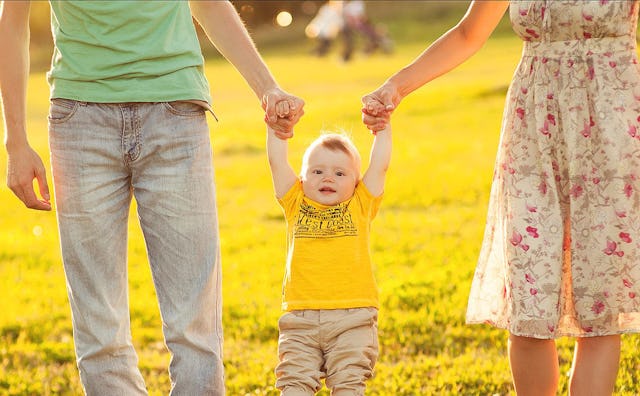7 Things Resilient Parents Do Differently

Ever wondered why some people bounce back from setbacks and others wallow in them, sometimes forever? These sorts of personality differences are apparent in the general population, of course—everyone endures traumas. But when we become parents, how resilient we are is thrown into high relief.
I’ve become aware of how I and other parents handle both the small trials of parenting, like a diaper blowout in the car or a tantrum in public, and the large ones, like divorce or job loss. I have wondered why some parents seem to collapse into a puddle while others soldier on, sometimes coming out the other side even stronger than before. There’s a large body of research on resiliency, and all of the research can be applied to parents. As someone who tends to burst into tears at the slightest setback, I was thrilled to see so much actionable advice on developing the grit it takes to recover from hardships. Below, the seven characteristics of resilient parents.
1. Even if they’re not optimists, they think like optimists. Martin E.P. Seligman, the “father of positive psychology,” has written extensively about resilience and the resiliency-training programs he’s implemented. He’s found that people who are able to recover from setbacks and even trauma are able to frame their thoughts in an optimistic way—they believe they have control over their situations and will be able to come out of this situation okay and maybe even better off.
2. They ask for help. Part of weathering tough times is knowing when you need to call in the cavalry. According to the Mayo Clinic, resilient people reach out to others for support.
3. They find the humor in crummy situations. In a German study of almost 43,000 elderly participants, researchers found that “humor was robustly positively correlated with life satisfaction.” We all know parents (maybe we are those parents!) who are clobbered by every bout of strep or a bad playdate. Finding a sense of humor in difficult times helps us move through them without getting bogged down in misery.
4. They think well of themselves. The American Psychological Association notes that one of the factors in resilience is “a positive view of yourself and confidence in your strengths and abilities.” We’ve all been in tight spots. My least resilient moments always come when I feel like a great big loser who can’t do anything right. But at other, better, times, I’ve thought “Nah, I’ve got this,” and even if I haven’t exactly got it, feeling like I’m a competent human being who can ninja her way through most situations has helped me bounce back. (I mean, everyone needs time to lick their wounds when they’re in tough times. It’s when the mourning goes on too long that there’s trouble.)
5. They’re realists. Not everyone can be a rock star. Resilient people accept that change is inevitable and part of life. As the APA says, “Certain goals may no longer be attainable as a result of adverse situations. Accepting circumstances that cannot be changed can help you focus on circumstances that you can alter.”
6. They don’t think setbacks are their fault. Seligman reports that after, for example, job layoffs, some people will interpret the event as necessarily their fault—the result of an inherent character flaw they’re stuck with. “We discovered that people who don’t give up have a habit of interpreting setbacks as temporary, local and changeable,” he says.
7. They are altruistic. Dr. Dennis Charney, a professor of psychiatry at Mount Sinai, studied a group of Vietnam vets who’d endured enormous trauma but somehow did not develop the kind of depression or PTSD that one would expect from trauma survivors. Along with optimism and humor, altruism was one of the group’s defining characteristics. “Those who were resilient often found that helping others was one way to handle extreme stress,” he reports. Parents who are involved in the community and are engaged in altruistic activities may find their own difficulties easier to work through.
This article was originally published on